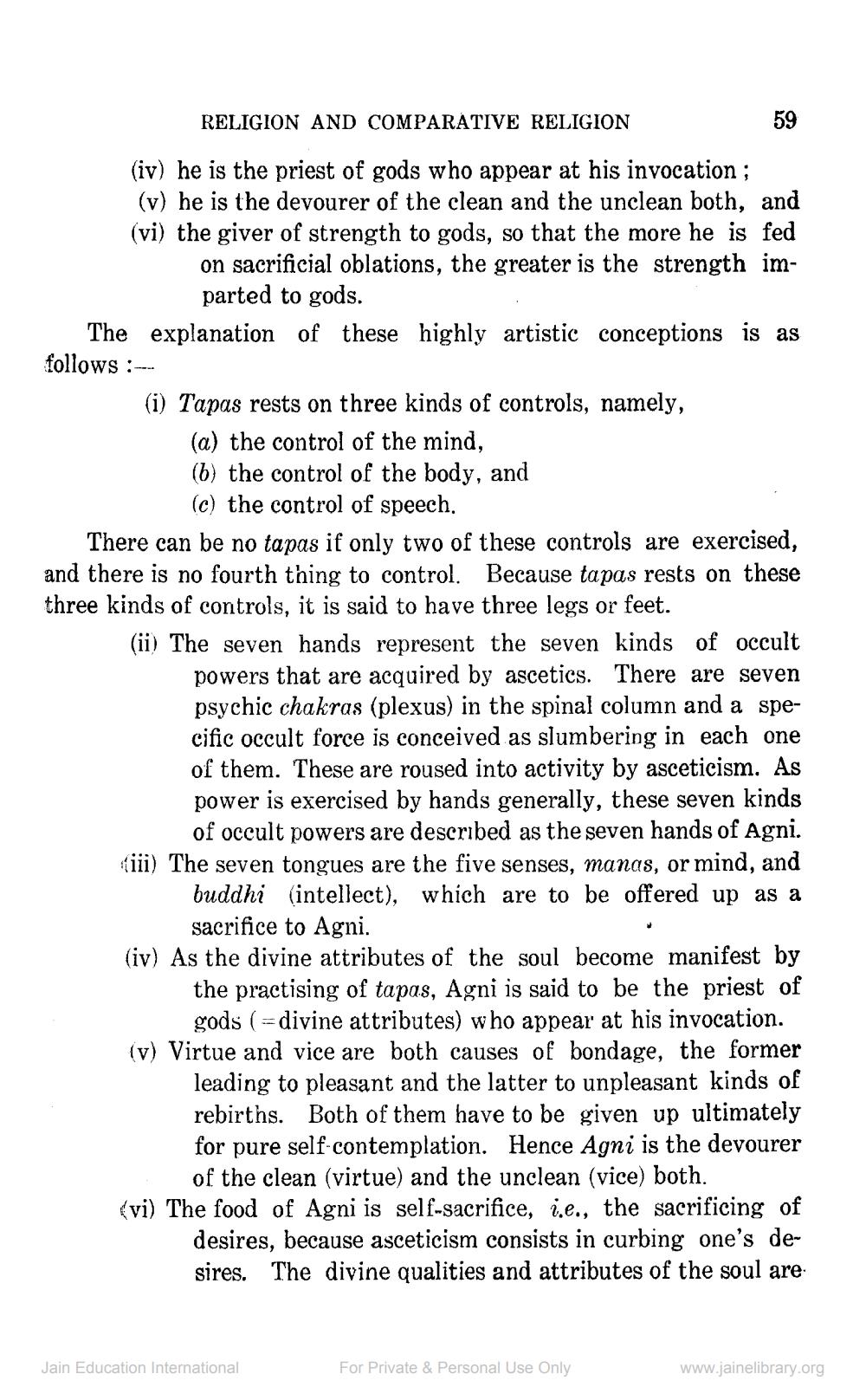________________
RELIGION AND COMPARATIVE RELIGION
(iv) he is the priest of gods who appear at his invocation; (v) he is the devourer of the clean and the unclean both, and (vi) the giver of strength to gods, so that the more he is fed on sacrificial oblations, the greater is the strength imparted to gods.
The explanation of these highly artistic conceptions is as follows:---
(i) Tapas rests on three kinds of controls, namely,
(a) the control of the mind,
(b) the control of the body, and
(c) the control of speech.
59
There can be no tapas if only two of these controls are exercised, and there is no fourth thing to control. Because tapas rests on these three kinds of controls, it is said to have three legs or feet.
(ii) The seven hands represent the seven kinds of occult powers that are acquired by ascetics. There are seven psychic chakras (plexus) in the spinal column and a specific occult force is conceived as slumbering in each one of them. These are roused into activity by asceticism. As power is exercised by hands generally, these seven kinds of occult powers are described as the seven hands of Agni. (iii) The seven tongues are the five senses, manas, or mind, and buddhi (intellect), which are to be offered up as a sacrifice to Agni.
(iv) As the divine attributes of the soul become manifest by the practising of tapas, Agni is said to be the priest of gods (= divine attributes) who appear at his invocation. (v) Virtue and vice are both causes of bondage, the former leading to pleasant and the latter to unpleasant kinds of rebirths. Both of them have to be given up ultimately for pure self-contemplation. Hence Agni is the devourer of the clean (virtue) and the unclean (vice) both. (vi) The food of Agni is self-sacrifice, i.e., the sacrificing of desires, because asceticism consists in curbing one's desires. The divine qualities and attributes of the soul are
Jain Education International
For Private & Personal Use Only
www.jainelibrary.org




